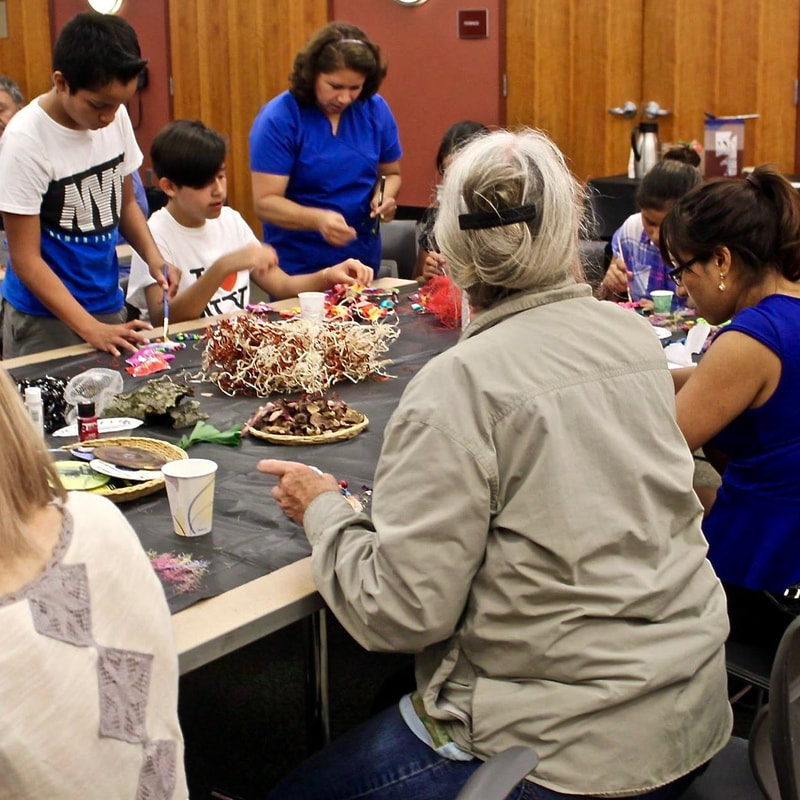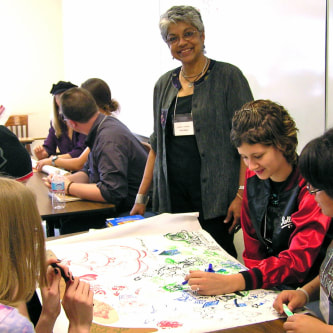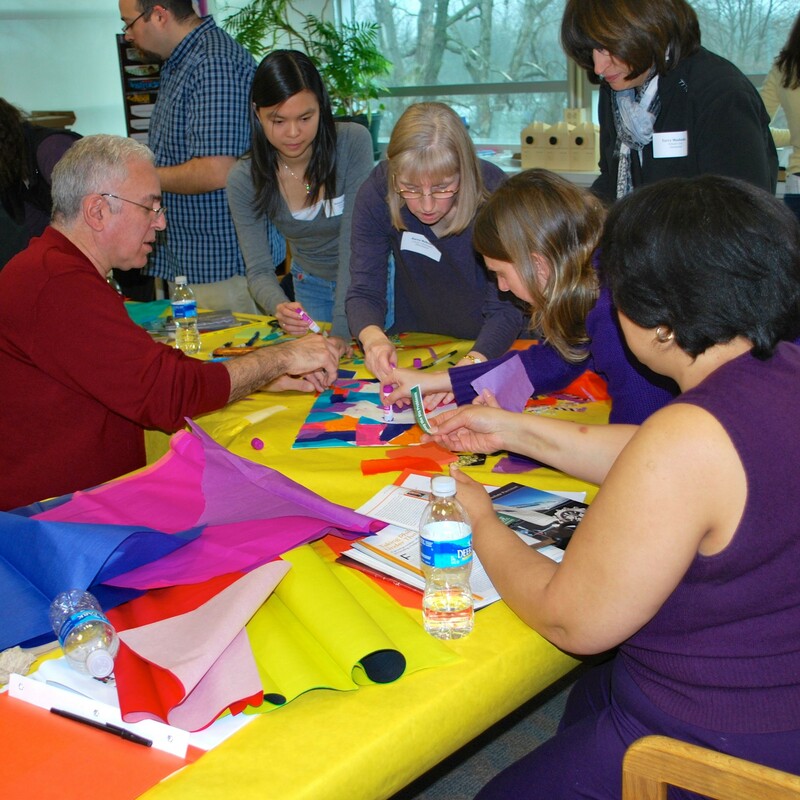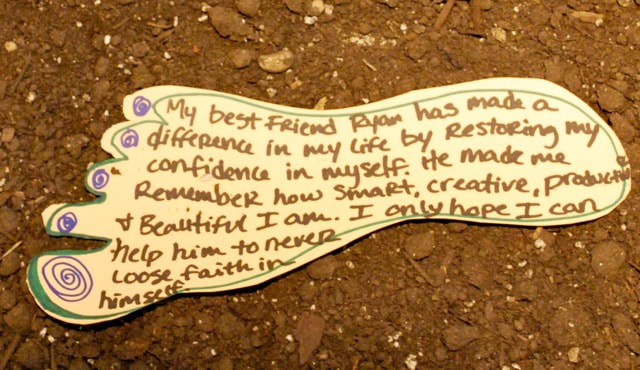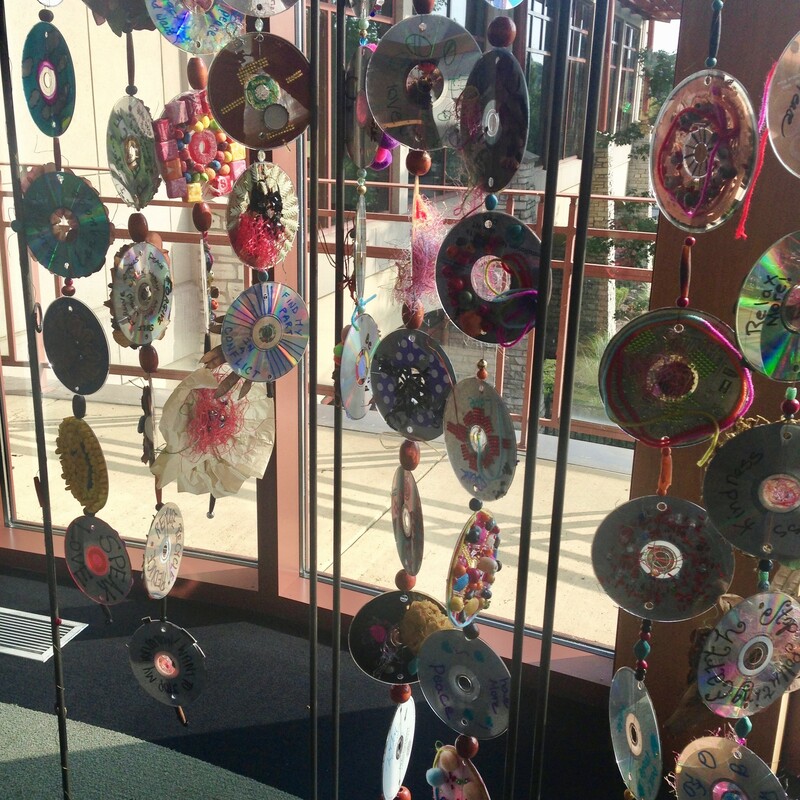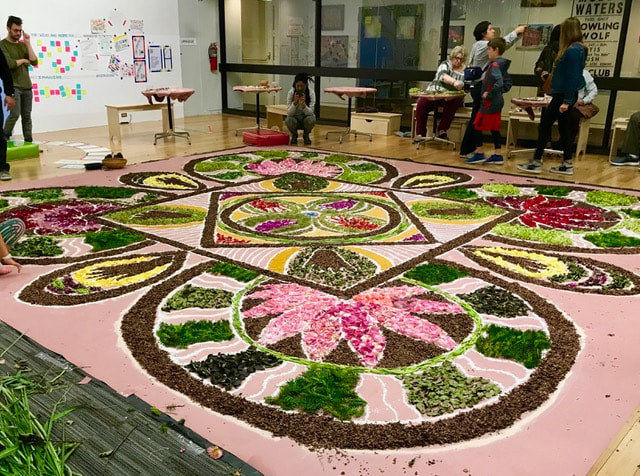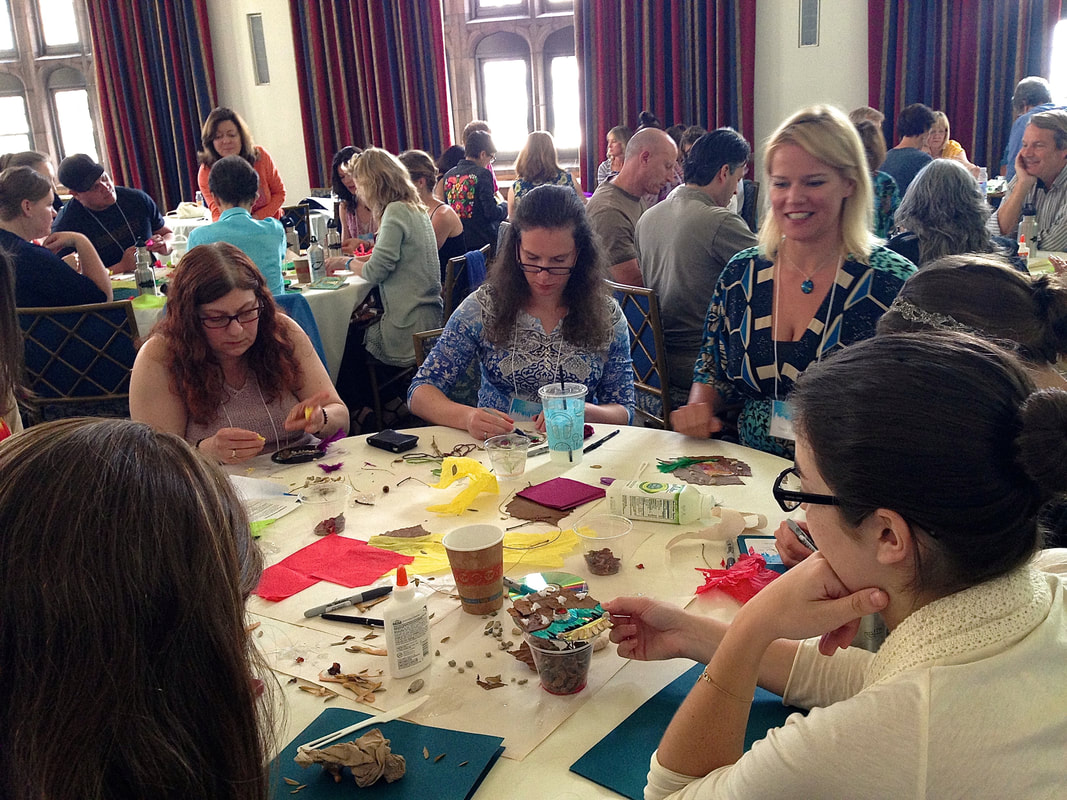Below is menu of workshops that I have developed over the past two decades. While all of the workshops focus on creativity and process, some are more oriented towards conversation and others on the act of making. These experiences are applicable to a wide variety of groups including classrooms, conferences, libraries and workplaces. If a workshop sparks your interest but doesn't perfectly fit your group, we can develop a unique program catered to the needs of your community.
I believe that the process of coming together to create art provides a stimulating, non-threatening and equalizing forum for dialogue. I use personal memory, communal history, traditional rituals, and opposing truths as an aesthetic resource. People with divergent viewpoints who don’t normally talk to each other learn about one another. As a result, participants develop empathy and learn that they share more similarities than differences. The numerous community based projects and workshops that I have facilitated cover a range of social issues including the cultural dimension of domestic violence, health education, labor, the environment, gender, peace, nonviolence and literacy. With these events, I encourage others to cultivate peace as individual action, to make art part of everyday life, and to involve local communities in the art process.
I believe that the process of coming together to create art provides a stimulating, non-threatening and equalizing forum for dialogue. I use personal memory, communal history, traditional rituals, and opposing truths as an aesthetic resource. People with divergent viewpoints who don’t normally talk to each other learn about one another. As a result, participants develop empathy and learn that they share more similarities than differences. The numerous community based projects and workshops that I have facilitated cover a range of social issues including the cultural dimension of domestic violence, health education, labor, the environment, gender, peace, nonviolence and literacy. With these events, I encourage others to cultivate peace as individual action, to make art part of everyday life, and to involve local communities in the art process.
One Step for NonviolenceOne Step For Nonviolence uses art and ritual to invite participants into a communal sharing of their understanding and practical knowledge of nonviolence practice. This workshop has a few creative forms.
Participants create using cut-out footprints - their own or those provided - and reflect on a nonviolent action that they have initiated or supported. Alternatively, we use CDs, with one side holding the reflection, and the other we use to hold beautiful collage of natural materials. As a culminating installation, the created objects are either put together in the form of a toran - a South Asian entryway hanging which traditionally welcomes friends and deities into the home’s sacred space - or collectively laid in a pattern on the ground. Past workshops include Gandhi Conference, Art Institute of Chicago, St Catherine University, St. Paul, MN., Gail Borden Library and the RISD Museum, and more. This creating workshop can be scaled to fit many sizes of groups. |
Community BlessingsRangoli is a South East Asian folk art tradition where a woman welcomes the day by painting a pattern on the threshold of her home. This tradition is centered on the protection and well being of one’s family. Throughout the course of the day, friends and family walk over the Rangoli and the process is repeated again the next morning.
We have transformed this family ritual into a community collaborative process called Community Blessings, which uses the Rangoli drawing tradition to embody wishes for the well being of the community and demonstrate our collective hopes for a peaceful world. Participants create the drawing using traditional materials like rice flour, turmeric powder, earth, and flower petals. Or, participants are welcomed to bring leaves or flowers from their personal or community’s garden to use as part of the design, thus uniting different neighborhoods and individual communities. This creating workshop fits medium, large, or public groups best. |
Outside the Brown Bag:
|
Understanding
|
